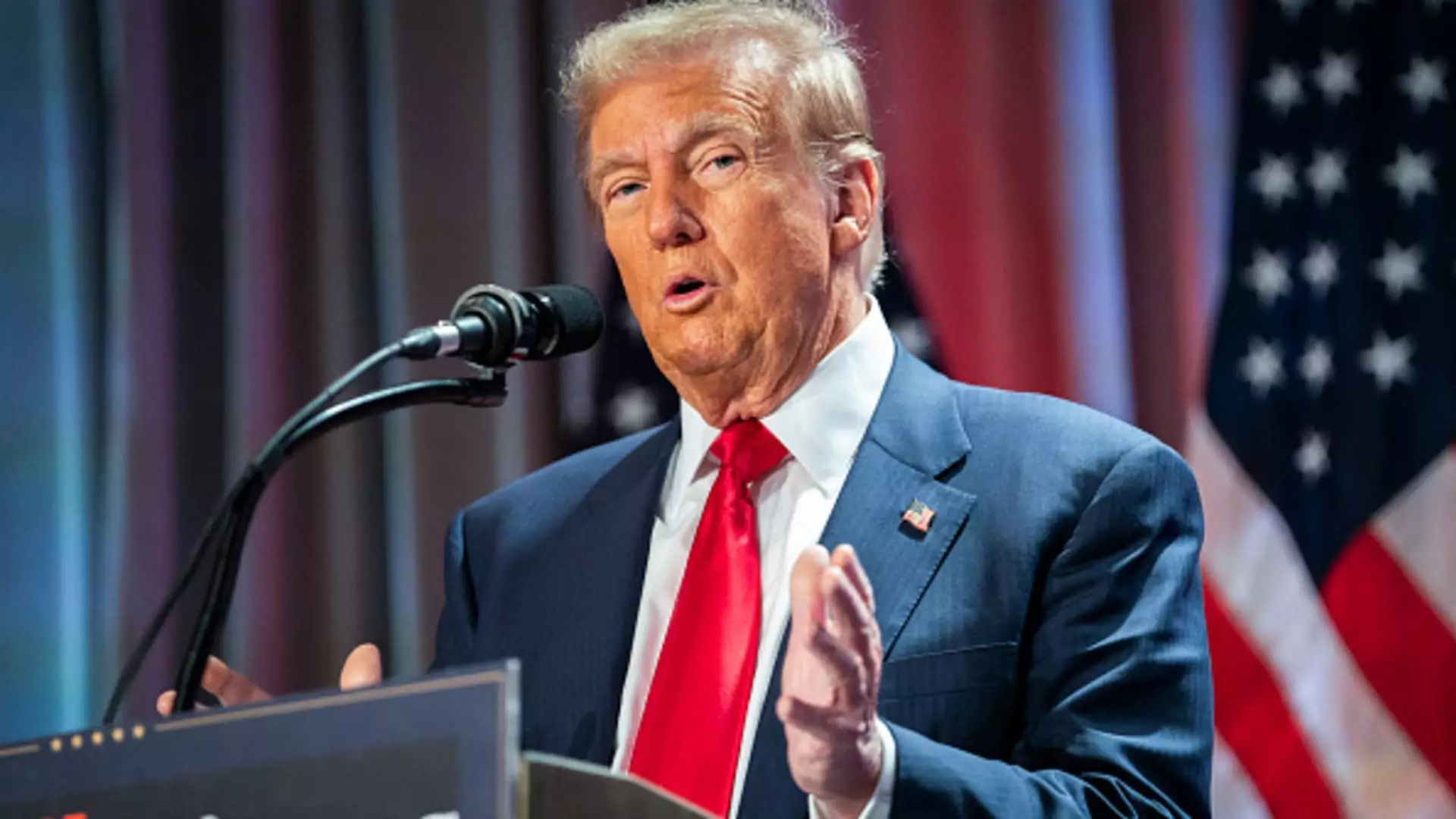As the political landscape shifts following a new presidential election, investors must recalibrate their strategies to align with potential economic outcomes. John Davi, a prominent money manager and CEO of Astoria Portfolio Advisors, articulates a prudent approach to navigating a turbulent market environment influenced by President-elect Donald Trump’s proposed tariff policies. Davi’s insights underscore the necessity for a meticulous selection of investment opportunities, particularly in the face of prospective inflationary pressures that could surge from the new administration’s economic agenda.
Davi’s analysis suggests that small-cap stocks may offer a more favorable investment avenue compared to their larger counterparts. He emphasizes that the characteristics of small-cap industrials align better with the anticipated pro-growth policies that could emerge under a unified Republican governance. His assertion is backed by recent performance data; since the election, the Russell 2000 index, which tracks small-cap stocks, has demonstrated an approximate 4% increase. This performance reflects a broader market sentiment that views small-cap stocks as likely beneficiaries of domestic policies aimed at fostering growth within the United States.
Moreover, Davi’s commitment to a domestic focus amidst tariff uncertainties reiterates a general market confidence in U.S.-based investments. His firm manages $1.9 billion in assets, and through his guidance, Davi advocates for an overweight stance on U.S. investments, which he believes will continue to be advantageous over the upcoming years leading up to the midterm elections. This strategy not only seeks to capitalize on short-term gains but also aligns with a longer-term vision that anticipates a more robust economic ecosystem.
Despite the optimistic outlook on equities, particularly small-cap stocks, Davi expresses caution towards fixed income investments. He acknowledges that the current environment presents significant challenges, largely exacerbated by the growing federal budget deficit. The implications of this deficit could lead to rising interest rates, creating market conditions that may diminish the appeal of bonds. Since the election, the benchmark 10-year Treasury yield has seen an increase of approximately 3%, signaling a shift that investors must consider when assessing bond portfolios.
Davi’s warning serves as a crucial reminder that the dynamics of the bond market are susceptible to swift changes influenced by policy decisions and macroeconomic developments. Investors who remain tethered to fixed income without discerning the changing landscape risk incurring significant capital losses.
In sum, navigating the investment landscape during periods of significant political and economic change demands agility and foresight. John Davi’s approach reflects a nuanced understanding of these complexities, advocating for a strategic focus on small-cap equities while exercising caution in fixed income holdings. As investors prepare for the forthcoming transformations that accompany a new administration, adopting a discerning and flexible investment strategy will be key to capitalizing on emerging opportunities while mitigating potential risks.

